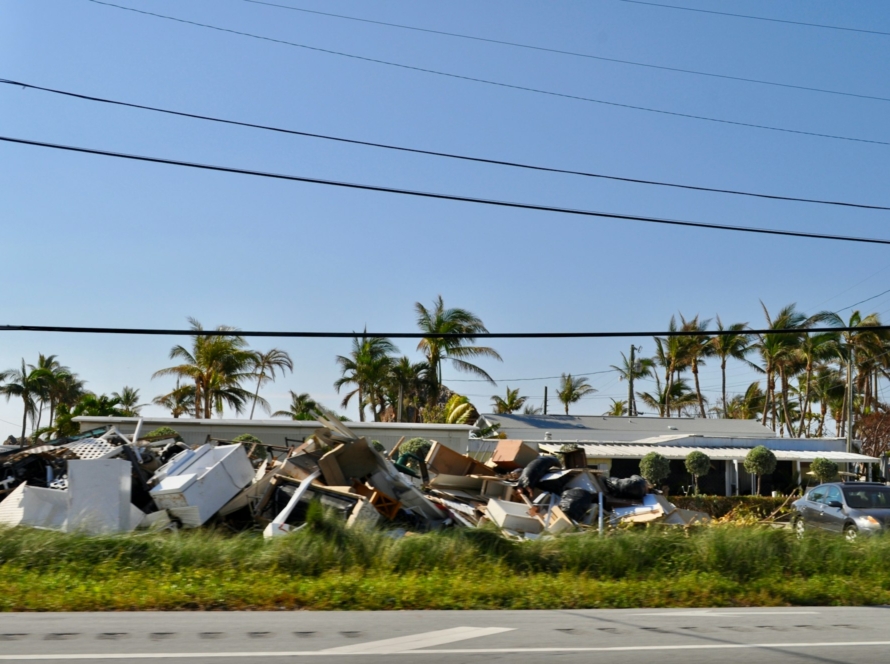A relevant reason for an insurance company to deny a claim is any kind of ongoing leak that has occurred for weeks, months, or years. Let’s say you’ve got a leaky faucet. It’s been leaking continually or off and on for several weeks or months, and you’ve not fixed it. rather than calling a plumber or handyman or off and on for several weeks or months, and you’ve not fix it. Rather than calling a plumber or handyman, you put a towel down . A claim related to the water damage would be denied due to the constant or repeated leakage or seepage. Another example would be allowing mold to remain for a long time without dealing with it. Or even not running your air conditioning in the summer, letting the temperature in your property rise very high. That might limit coverage. Also, abandoning your property or not being at your property for a long period of time and not having anyone come by to check on it. These are all reasons for denying a property claim.
It is important to know that the insured homeowner does have a duty to maintain their property, not only before a loss but after. Filing a previous claim and then never making the repairs is a reason for denial. Actions such as leaving doors or windows open that allow the weather to affect your property is a reason for denial. Keeping older appliances in the house and/or using these older appliances (an oven, refrigerator, dishwasher, dryer, etc.) that you KNOW are having problems is a reason for denial. If machinery that has had problems in the past has run unattended and causes a loss, that loss might not be covered.
You, as a homeowner, do have a duty to keep your home in functioning order. After a loss happens, your duty is to make it right by taking reasonable steps to prevent your property from further damages. There are several ways insured homeowners can take preventative measures to ensure they are properly maintaining their property.
Waiting Too Long – How Long Do You Have to File a Home Insurance Claim After Damage Has Occurred And What Happens If You Wait Too Long?
One of the measures homeowners can do after a loss is to timely file a claim.
The amount of time to file is based on what is damaged as well as what a reasonable person would do in that situation. If, for example, there is a loss inside your kitchen or bathroom due to water, it’s reasonable for you to report the loss within a few days if not immediately. If it is the loss of your house’s roof, the reasonable time is different. Homeowners are not expected to climb up and walk around on their roofs. Roof damage often is due to the wind where there’s no interior damage such as ceiling staining. But the only way to see the damage would need someone climbing up on the roof to inspect it. Some insurance companies have found roof claims reported after a year reasonable while other insurance companies have found a month unreasonable. Thus, a reasonable length in filing a claim depends on the insurance company as well as what kind of damage. However, if there is an unreasonable delay between the reporting of the claim and the date of the loss, the insurance company can deny the claim.
For a normal claim, the sooner it is reporter the better. Waiting too long gives the insurance company a reason to deny the claim. Your delay in filing a claim supports an insurance company’s denial of it, especial if your loss ever goes to trial by a jury. If the jury finds the delay unreasonable, this becomes an exclusion the insurance company can use to deny your claim.
Not Having the Right Inclusions in Your Home Insurance Policy – What Are Some Potential Losses That Homeowners Can Often Assume Are Going to Be Covered But Later Discover They’re Not When They Need to Use It?
In addition to your checking on exclusions (what is not covered), or endorsements (what is not covered or limited coverage is offered for a premium reduction), another item to check in your homeowner insurance policy is having the right inclusions (what is covered). For example, water damage is usually covered as it is the most common type of claim. There are, however, policies that have water damage exclusions and water damage endorsements.
There are two kinds of insurance policies:
- HO3 policy: This is the most common, affordable homeowners’ insurance policy providing comprehensive protection for your home, belongings, and liability, which will cover any loss unless it is specifically excluded.
- A named policy: the only kind of loss that’s covered are the ones that are named, listed, in the policy. For example, fire, hurricane, tornado, lightening, etc. Unless named, these policies will not cover water or wind damage.
Living in Florida, there are a lot of water events. No homeowner in Florida should want any kind of water damage exclusion or limited water damage endorsement in their policy.
For more information on First Party Insurance Claims in Florida, an initial consultation is your next best step. Get the information and legal answers you are seeking by calling (407) 915-5447 today.
What Would Be a Good Idea to Inventory, What Types of Things Would Generally Be Included?
Expensive furniture and any kind of collectibles should be on the inventory list: anything from couches, bedroom sets, office furniture to art work, coins, clothes, jewelry, or antiques. While insurance companies generally cover some of your property’s contents, there are limits. Certain collectibles might only be covered up to a certain amount. If you have items that exceed the insurance company’s limits, you’ll need to insure them separately. For example, it’s best to have a separate insurance policy for jewelry, especially if it exceeds the insurance company’s limits. For the same reason, you may also have a separate insurance policy for any item in your home. In the case of a loss, the more documentation of your property’s contents, the easier it is going to be to make the claim for reimbursement.
Not Understanding What’s in Your Home Insurance Policy – What Are the Dangers in Failing to Read And Understand Your Home Insurance Policy before You End Up Needing It?
Past clients were surprised to see that their property worth several million dollars was only covered for a few hundred thousand dollars. Their surprise comes from assuming everything in their house was covered under the typical HO3 policy (the most common, affordable homeowners’ insurance policy providing comprehensive protection for your home, belongings, and liability). If items are covered, and they may not be, they are covered up to a certain amount. Most HO3 policies will cover the loss of cash between a few hundred or thousand dollars. Items such as jewelry, watches, antiques will often be capped at a few thousand dollars based on policy limits.
Then there are endorsements or riders to insurance policies, which is an amendment or addition to an existing insurance policy that changes the terms or coverage of the original policy. Endorsements require you to read the fine print. They can change your insurance coverage, even the checklist on your policy that states your coverage. For example, the insurance company might send a letter saying they are adding a limited water damage endorsement to your policy in exchange for a discount on the premium. This means your policy might have water damage loss capped at $10,000 or $15,000.
Endorsements automatically renew. Maybe something came in the mail about the renewal, but you didn’t read all 60-70 pages. Maybe it has come in the mail for years, and you didn’t read it. You experience a property loss at your home, and your insurance company says that your policy was changed several years back. And you consented to that change. Thus, it’s important to read your policy every year, make sure nothing has changed, make sure you have enough coverage and the right coverage for the items on your property inventory list, and check on any endorsements as well as riders on how they affect your coverage.
For more information on First Party Insurance Claims in Florida, an initial consultation is your next best step. Get the information and legal answers you are seeking by calling (407) 915-5447 today.
Schedule a FREE Consultation.
Submit your case details swiftly through our contact form for Payne Law’s prompt review and response.
Error: Contact form not found.



